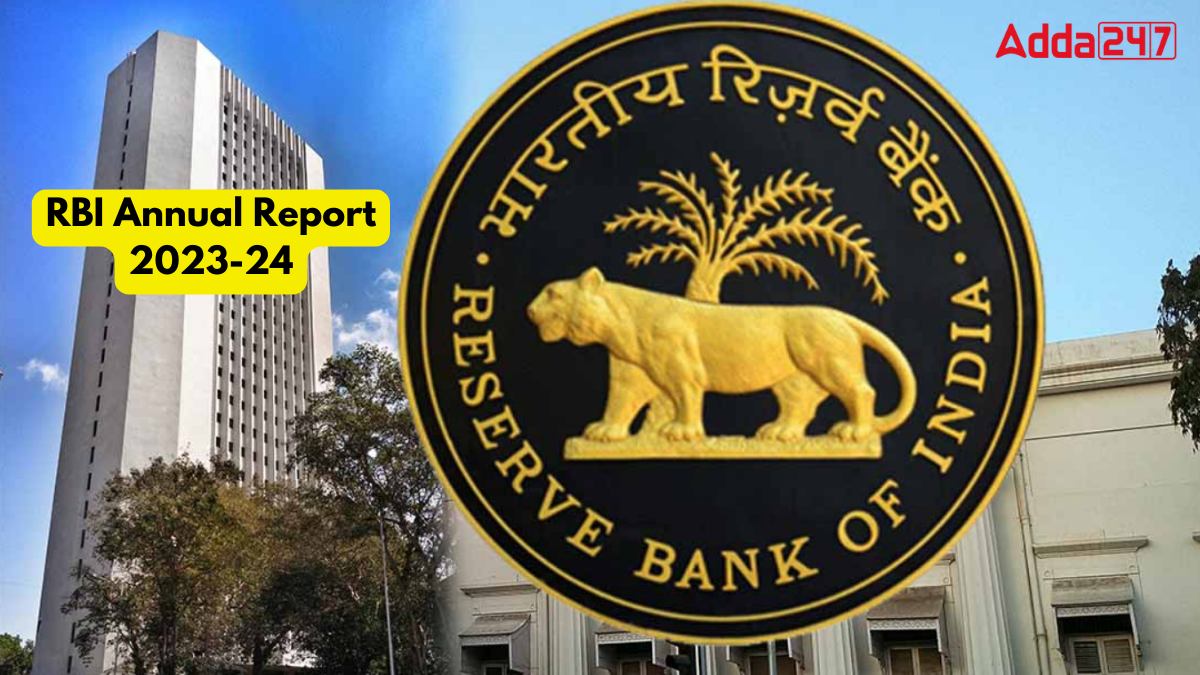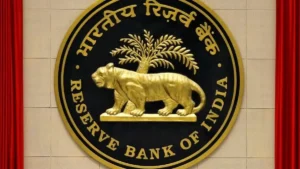The Reserve Bank of India’s (RBI) Annual Report for 2023-24, presented to the Central Government under Section 53(2) of the Reserve Bank of India Act, 1934, provides a comprehensive analysis of the global and domestic economic environment, the working and operations of the RBI, and the prospects for the forthcoming year. The report includes detailed sections on various economic indicators, policy measures, financial inclusion, regulatory developments, and more. Below is a summary of the key points and details from the report:
1. Global Economic Environment
- The global economy showed resilience despite multiple challenges, including elevated inflation, tight monetary conditions, geopolitical tensions, and financial stability risks.
- Global growth is projected to weaken below its historical average in 2024, with uneven pathways across geographies and sectors.
- Inflation eased but remained above target in major economies, with further disinflation impeded by sticky core and services inflation and tight labor markets.
- Emerging market economies (EMEs) began rate-cutting cycles, while major advanced economies (AEs) pivoted towards rate cuts amid inflationary pressures.
2. Domestic Economic Environment
- The Indian economy exhibited strength and stability, emerging as the fastest-growing major economy with robust macroeconomic fundamentals.
- Real GDP growth accelerated to 7.6% in 2023-24 from 7.0% in the previous year.
- Gross fixed capital formation (GFCF) accelerated to 10.2%, driven by government spending on infrastructure, while private consumption demand grew at a slower pace of 3.0%.
- Inflationary pressures moderated, with headline inflation softening to 5.4%, driven by a fall in core inflation and deflation in fuel prices.
- The Monetary Policy Committee (MPC) kept the policy repo rate unchanged at 6.50%, maintaining a stance of withdrawal of accommodation to ensure inflation aligns with the target while supporting growth.
3. Financial Sector
- Domestic financial markets remained stable, with orderly movements in the bond and foreign exchange markets and exuberant equity markets.
- The Indian Rupee (INR) displayed stability, depreciating by 1.4% during 2023-24, making it one of the best-performing major EME currencies.
- Equity prices recorded solid gains, with the domestic equity market capitalization crossing the US$ 4 trillion mark.
- The transmission of repo rate increases to banks’ lending and deposit rates continued, with a rise in external benchmark linked loans in total outstanding floating loans.
4. Fiscal and External Sector
- The central government achieved fiscal consolidation commitments, with the gross fiscal deficit (GFD) declining to 5.9% of GDP in 2023-24 from 6.4% in the previous year.
- Revenue spending growth was contained at 2.5%, while capital expenditure grew in double digits for the fourth consecutive year.
- India’s merchandise exports fell by 3.1% in 2023-24, driven by declines in global trade volume and commodity prices, while imports fell by 5.7%.
- The current account deficit (CAD) moderated to 1.2% of GDP during April-December 2023 from 2.6% a year ago.
- Foreign exchange reserves rose to an all-time high of US$ 648.7 billion, covering 11.4 months of imports.
5. Regulatory and Supervisory Developments
- Several regulatory and supervisory guidelines were issued to strengthen governance, risk management practices, and capital buffers.
- Guidelines included default loss guarantee in digital lending, framework for compromise settlements and technical write-offs, and prudential norms for investment portfolios of commercial banks.
- The Reserve Bank actively engaged with supervised entities to ensure compliance with governance and assurance functions and conducted comprehensive onsite cyber risk assessments.
6. Financial Inclusion and Digitalisation
- The Financial Inclusion Index (FI-Index) improved from 56.4 in March 2022 to 60.1 in March 2023, reflecting deepening financial inclusion.
- The rapid momentum of online retail and e-commerce drove overall growth in card transactions, with significant growth in the Bharat Bill Payment System (BBPS).
- The UPI platform achieved significant milestones, surpassing 13 billion transactions in a single month in March 2024.
- Enhancements in various payment systems continued to facilitate user access and convenience, including the introduction of near field communication (NFC) technology in UPI-Lite and ‘Conversational Payments’ on UPI.
7. Prospects for 2024-25
- The outlook for the Indian economy remains bright, underpinned by strengthening macroeconomic fundamentals, robust financial and corporate sectors, and a resilient external sector.
- The government’s continued thrust on capex and fiscal consolidation, along with consumer and business optimism, bode well for investment and consumption demand.
- The prospects for agriculture and rural activity appear favorable, with the expected above-normal southwest monsoon and government initiatives to support the agriculture sector.
- Emerging sectors like renewable energy and semi-conductors are expected to advance rapidly, supported by government initiatives and budget allocations.




 PhonePe Launches AI-Powered Natural Lang...
PhonePe Launches AI-Powered Natural Lang...
 ICICI’s New Swasthya Pension Scheme: A S...
ICICI’s New Swasthya Pension Scheme: A S...
 RBI’s New Rulebook: UTI Required for All...
RBI’s New Rulebook: UTI Required for All...








